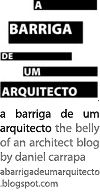Enough
Published Wednesday, December 30, 2009.
Muji’s mission statement for the New Year raises a couple of interesting issues relevant to the wide world of design culture. The initial premise is the focus on providing products that are “enough” and not necessarily “the best”. Basically, the idea is that we should aim to design goods that are adequate to the customers needs. Now the truth is that we live in a world where many of us are drawn to the concept of “top of the line”, even if that may not be the most rational choice regarding our own personal parameters. Say, for example, that you want to buy a mobile phone. You may fancy for the best mobile the market has to offer. You start desiring that Iphone or that Blackberry you’ve read about, even though you may end up not using a tenth of all the functions it has to offer. You’re fancying the object, not the tool that’s adequate to you.
Another example of this trace in contemporary consumption culture is a digital camera. Some people pay a lot of money for a top camera even though they have never processed (or plan to process) a RAW image file. Maybe they don’t even know what RAW is. It takes a lot of dedication and time to fully explore a powerful photographic camera these days, but again, it becomes a yearning for the object, that wonderful camera you’ve fallen in love with. And you may end up doing this in many other things in life, like that premium sound system you bought, even though you don’t have a living room big enough to sustain it. Or the lifestyle to invest some quality time into listening to that huge CD library you possess.
I’m not saying there’s anything wrong with having desires in life. But when it comes to consumption, often it’s not rationality that’s driving the consumer’s choices. And this is where sustainability comes into play. Because sustainability lies in the adequate use of resources to provide for the needs involved. It is, as Muji’s message states, a matter of minimalism, not as a style, but as a paradigm for a new economy.
Unless we adopt values informed by moderation and self-restraint, the world will find itself at an impasse. All people living today deep down are probably already beginning to consider greater self-restraint as a way of life.
So I was considering these ideas and wondering how they also relate to the field of architecture nowadays. We may still regard architecture as a realm for experimentation and technological innovation. But if we are not applying those values to provide for a rational use of materials and construction processes, aiming for the adequate needs of the users, then, we are failing to install an ethical form of practice. Experimentation is only relevant if guided by rationality. It is not a value in itself.
Via Core77.
ENGLISH EDITION
The English-only edition of the blog A Barriga de um Arquitecto is no longer being updated. Please visit the main page to access new content, additional information and links.
ARCHIVES | ARQUIVO
September 2008 October 2008 November 2008 December 2008 January 2009 February 2009 March 2009 April 2009 May 2009 June 2009 July 2009 August 2009 September 2009 October 2009 November 2009 December 2009 January 2010 February 2010 March 2010 April 2010 May 2010 June 2010 July 2010 August 2010 November 2010 January 2011 February 2011 March 2011 June 2011 July 2011 October 2011 December 2011

0 Messages to “Enough”
» Leave a message